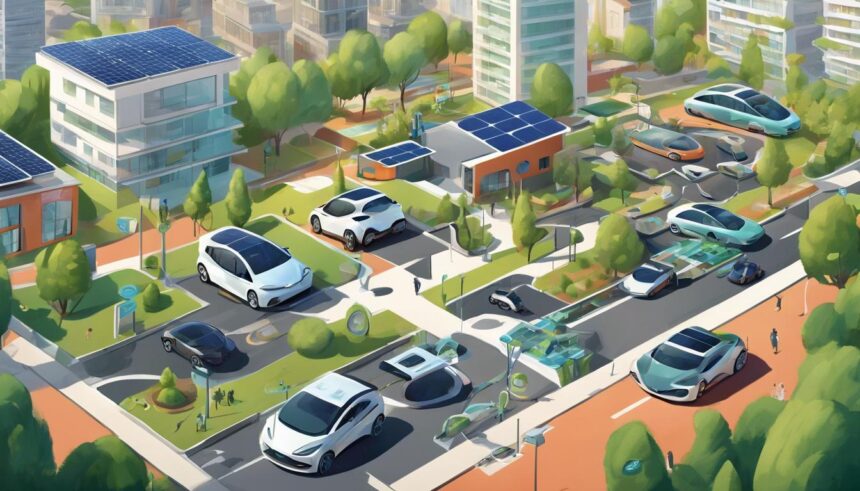A new study highlights the emergence of EV-friendly housing markets in the US, with San Jose, Salt Lake City, and San Francisco leading the charge. This trend, reflecting an accelerating shift towards electrification, is reshaping American home buying preferences.
In an illuminative new study, Realtor.com®, in collaboration with Cox Automotive, has spotlighted the emergence of electric vehicle (EV) friendly housing markets across the United States, illustrating the evolving landscape of American home buying preferences amid an accelerating shift towards electrification. At the forefront of this eco-centric trend, San Jose, Calif., Salt Lake City, Utah, and San Francisco have been distinguished as the leading markets for EV owners, showcasing both a high share of listings boasting EV-friendly features and access to public charging facilities.
The transition to electric vehicles is gaining momentum, with Kelley Blue Book reporting that 1.2 million U.S. vehicle buyers opted for electric in 2023 alone. This shift underscores a growing need for residential environments that accommodate the distinct requirements of EV ownership—a necessity that realtors and home sellers are increasingly keen to address.
Key factors contributing to the desirability of these markets include the availability of homes equipped with EV charging capabilities and the density of public charging ports. For instance, the San Jose-Sunnyvale-Santa Clara metro area not only leads with the highest proportion of EV-friendly home listings (4.9%) but also demonstrates significant ownership, with one in five households owning an electric vehicle.
This adaptation is not confined to the bustling tech hubs of California. Cities as varied as Boston, Seattle, and Austin also feature among the top markets, underscoring a nationwide inclination towards sustainability and technological readiness in the housing sector. The diversity in locations highlights how the allure of EV-friendly housing transcends specific geographic or economic characteristics, hinting at a broader shift in consumer values towards environmental consideration and innovation.
Analyzing the ratio of EVs and Plug-In Hybrids (PHEVs) to public charging ports reveals insights into the infrastructure’s ability to meet the needs of EV owners. For example, Boston exhibits a relatively low congestion index with 13 EVs per public charging port, suggesting an environment that’s particularly accommodating for electric vehicle owners.
The growth in EV ownership has direct implications for the real estate market. In 2023, 0.9% of for-sale homes listed on Realtor.com® were described as EV-friendly, a significant increase from just 0.1% five years prior. Such statistics herald the evolving preferences of home buyers and renters, increasingly prioritizing properties that cater to the lifestyle of EV ownership.
Economists from both Realtor.com® and Cox Automotive have noted the symbiotic relationship between the housing and automotive industries in this context. The integration of EV-friendly features into homes not only meets a practical need for charging infrastructure but also signifies a market differentiator that adds real value. This trend is expected to amplify as the adoption of electric vehicles continues to rise.
Despite the encouraging growth, there remains substantial room for expansion in the availability of EV-friendly homes. The public charging infrastructure, while improving, still presents challenges in terms of accessibility and convenience, further emphasizing the importance of home charging capabilities.
As the United States stands on the cusp of an electric mobility revolution, the nexus between automotive technology and housing infrastructure has never been more pertinent. The prowess of these top EV-friendly housing markets not only accentuates the progressive strides being made but also sets a benchmark for other regions to aspire towards. The future, it seems, is electric—both on the roads and in our homes.





